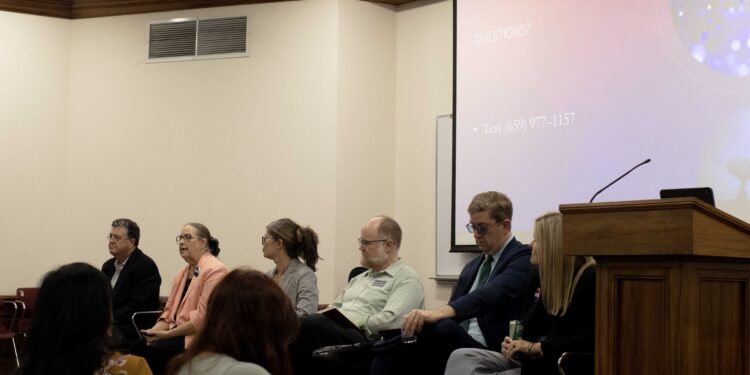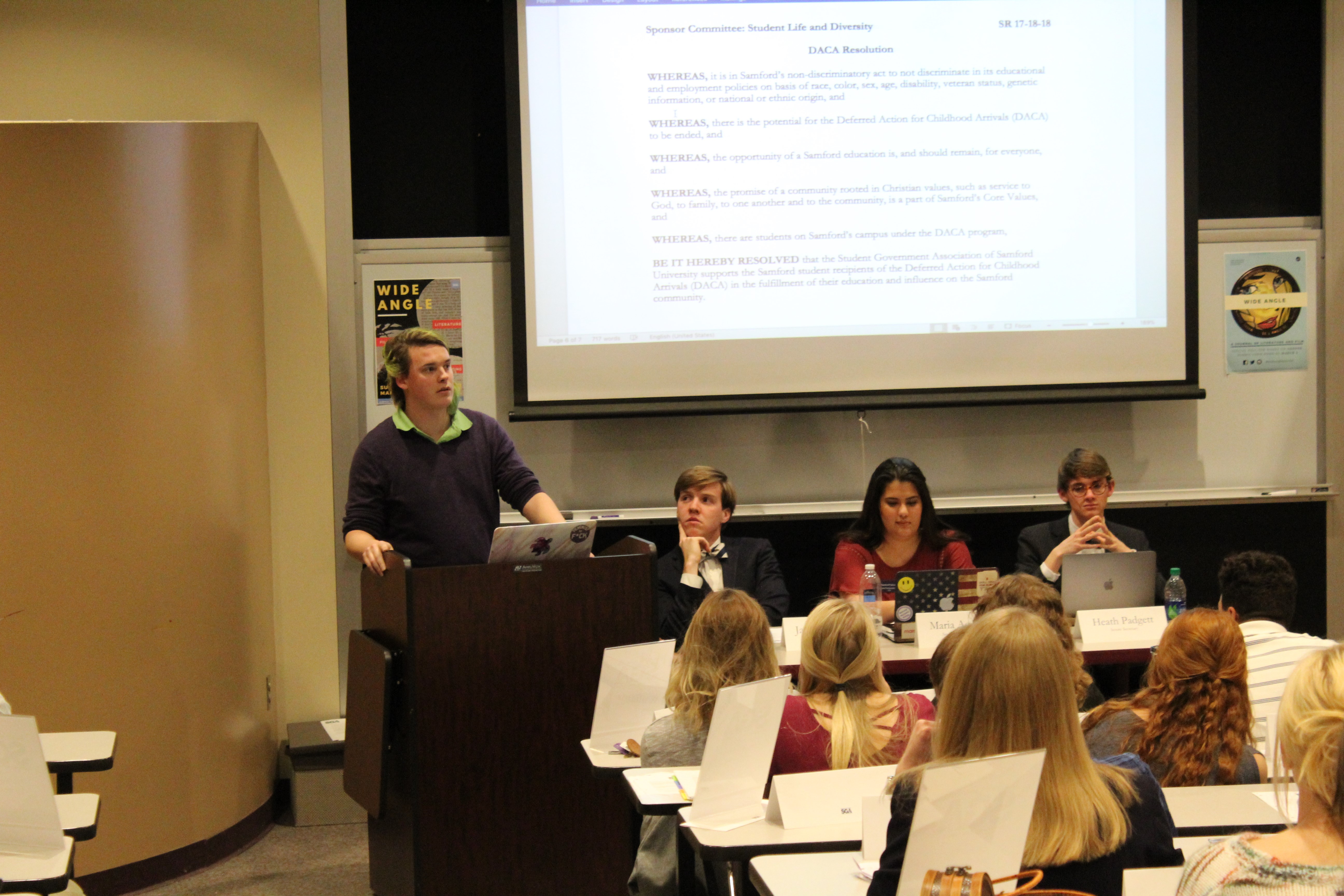In less than two months, millions of Americans will cast their ballot to vote for their presidential candidate. In less than two months, Americans will find out the candidate elected to serve as our country’s leader for the next four years.
For college students, many questions regarding the election can prove challenging, such as deciding who to vote for, how to register to vote and where to vote.
The League of Women Voters (LWV) is a non-partisan organization on campus that seeks to educate students on voter rights and promote voter registration.
Annie Kelley, who serves as the president of the LWV, talked about the importance of registering to vote.
“I think it’s important for everybody to vote, but I think it’s important to know why you’re voting, don’t just cast your ballot because you feel obligated to cast your ballot,” Kelley said. “There is an urgency and certainly a privilege of being able to vote, but with that comes the responsibility of voting wisely.”
On Oct. 8, the LWV is hosting a debate between the Samford Democrats and Republicans.
“If you don’t know what you’re voting for, and if you don’t understand the impact that your vote will have, voting in that sense is not a net good,” said Kendall Jarrard.
Jarrard serves as the president of Samford Republicans, while TJ Riggs is the president for the Samford Democrats. They discussed their views on the responsibility of voting knowledgably.
“I think we have a duty to vote and participate in our civic system,” Riggs said. “I believe that again, we’re voting for politicians that represent us, and if there are politicians in office that don’t represent our values, then we have a duty and a responsibility as an American citizen and a right as an American citizen to what we can about that at the ballot box.”
Both Jarrard and Riggs said that in choosing a candidate to vote for, it takes evaluation of one’s own values.
“They (students) should decide based off of their own beliefs and values.” Jarrard said.
Students can either register to vote in the state of Alabama, where they go to school, or they can register in their home state, but they cannot register in both states.
“I think the most important thing is to find politicians that represent your values,” Riggs said. “Nobody can tell you what you individually believe. That’s up to you to decide and then to do the research to kind of how those politicians align with your views on certain subjects.”
Kelley also provided her advice for students unsure of who to vote for.
“I think it could be dangerous to vote for a person just based off of who you think they are,” she said. “I think it’s equally dangerous to vote for the party just because you like the party. I think it takes self-reflection, wisdom and research to find out what are the causes you believe in and what you’re passionate about.”
Students can visit the website VOTE411, created by the LWV, to learn about the voting procedures in their state. This is particularly helpful for students attending school out of state, to learn the rules of absentee ballots, online voting, and voting in the state they attend school.
Kelley spoke about the new generation that is now able to vote for the first time.
“Yes, there’s a hope in our generation,” she said. “But there’s also a responsibility not to let this new privilege (of voting) be reactive, so don’t vote because you’re reacting against what happened four years ago or eight years ago, but vote because this is now a responsibility that you can partake in.”

News Editor






